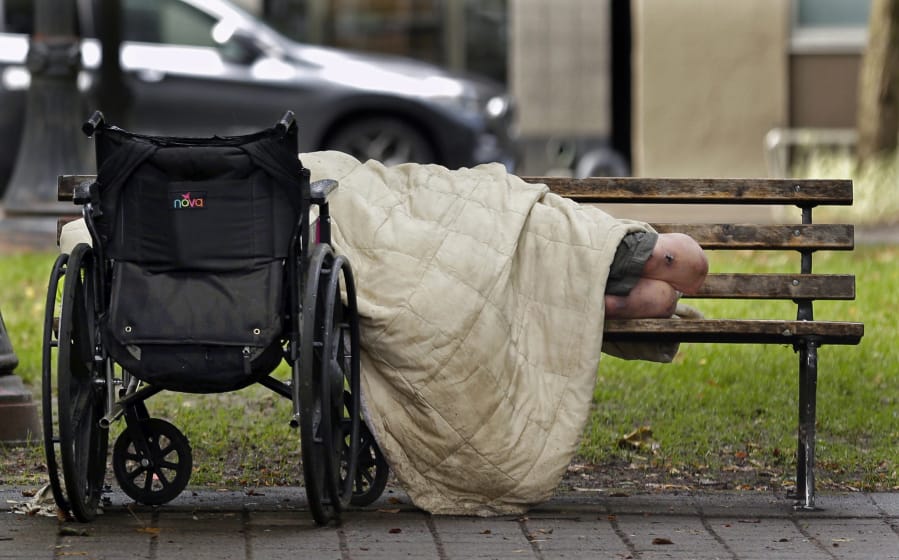An Oregon Court of Appeals ruling Wednesday upheld one woman’s conviction for violating Portland’s camping ban, but the judges signaled that a different case could potentially overturn it.
Three years ago, homeless Portlander Alexandra Barrett argued that some of the criminal charges she had racked up in 2014 should be dismissed because they unfairly targeted her for being homeless.
The one she zeroed in on was the city’s prohibition against camping on public property. In a pretrial motion, her attorneys tried to get the case dismissed on the grounds that the charge, when applied to homeless people, violated the Constitution’s Eighth Amendment’s prohibition on cruel and unusual punishment.
The argument boiled down to whether it is cruel to arrest Barrett for sleeping in downtown Chapman Park if she had nowhere else to go.
That argument lost at the circuit court level and Barrett was found guilty.
Still, she appealed.
Since the Appeals Court case was argued in 2017, the federal Ninth District Court made a landmark ruling that cities cannot ban camping if there are not enough shelter beds to house every homeless person.
However, the Oregon appellate judges noted that they were not bound by that case because only federal appeals court cases or Supreme Court ones are binding on a state appeals court.
And in this instance, they ruled, Barrett didn’t provide enough information to determine whether she could have accessed shelter at the time she was arrested. She didn’t have proof that there were no open shelter beds on the nights she camped in a downtown Portland park, for instance, and there was some testimony that she rebuffed police offers to connect her to social services or a shelter bed.
Portland city attorney Tracy Reeve said that she is still confident the city’s camping ordinance is in line with both state and federal law.
“We do not expect the courts’ recent decisions to have an immediate impact on the City since the City has been operating consistently with these decisions in the past and will continue to do so,” Reeve said.
But nine of the 11 appeals court judges specified that the ruling only applied narrowly to Barrett’s failure to provide enough information — not whether Portland’s camping ban violates the Eighth Amendment, which leaves open the door for a future case.
Two judges took the ruling a step further by saying that banning camping on public property by homeless people likely does violate the Eighth Amendment – if they are not voluntarily homeless.
“As I see it, it is not hypothetical that the homeless in Portland are subject to criminal punishment for a circumstance that is, in many cases, beyond their control,” wrote Judge Darleen Ortega, “and those in circumstances similar to those faced by defendant would benefit from guidance by this court.”
She continued: “The city’s blanket prohibition of public camping violates the Eighth Amendment when the camping is an unavoidable consequence of being homeless.”
While the ruling disappointed homeless advocates, they found some hope in the ruling and especially Ortega’s opinion.
“Members of the Court of Appeals raise serious and important questions about the constitutionality of the ordinance and the use of it to prosecute homeless Portlanders,” Barrett’s attorney Lindsey Burrows of law firm O’Connor Weber said.




